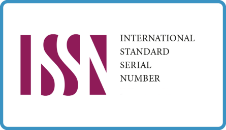Implementasi Kerukunan Harmonis Pada Sekolah Dasar Maitreyawira Ketapang Kalimantan Barat
DOI:
https://doi.org/10.69607/yfyeck91Keywords:
implementation, harmony, character educationAbstract
The purpose of this study is to help Maitreyawira Elementary School's early childhood education program develop an attitude of independence. The sample was chosen purposefully, and participants included the parents of the pupils, the teachers at TK Maitreyawira, and the leadership of the education unit. The research methodology employed was qualitative research in case study style. gathering information through triangulation, documentation, interviews, and observation. data reduction, data presentation, and conclusion/verification through the use of interactive models (MILES and HUBERMAN, 2014, 247). Triangulation and member checks are used to validate concepts in order to ensure the data's correctness. According to the research, (1) Maitreyawira Elementary School's application of independent attitude learning begins with the following: independence, honesty, democracy, sociality, religion, and the 5S culture: responsibility and environmental respect. (2) Early childhood positive habits have increased as a result of the adoption of autonomous character education for the development of Maitreyawira Elementary School's Ketapang children. Harmonio harmony implementation at Maitreyawira Elementary School's is still comparatively strong, but not at its best, according to implementation metrics and the findings of interviews with the principal and three of the school's instructors. The percentage of these indications that require development is 58% for prioritising others frequently and consistently, 46% for feeling joyful and excited at home and at school every day, and 67% forworking with others. Others receive a 75% rating as good.
Downloads
Published
Issue
Section
License
Copyright (c) 2024 Edy Tansuri, Hosan Hosan

This work is licensed under a Creative Commons Attribution 4.0 International License.










